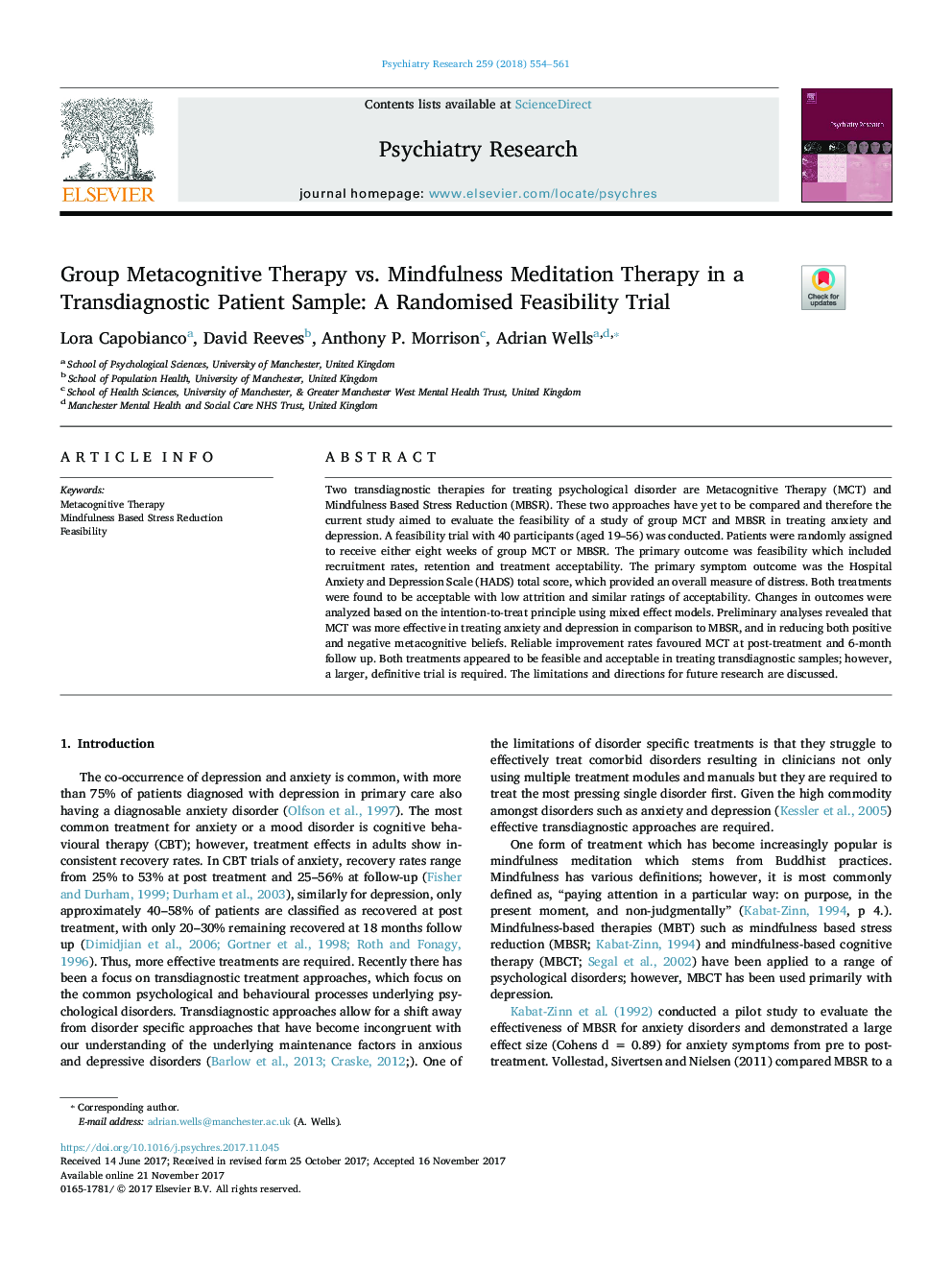| Article ID | Journal | Published Year | Pages | File Type |
|---|---|---|---|---|
| 6812147 | Psychiatry Research | 2018 | 8 Pages |
Abstract
Two transdiagnostic therapies for treating psychological disorder are Metacognitive Therapy (MCT) and Mindfulness Based Stress Reduction (MBSR). These two approaches have yet to be compared and therefore the current study aimed to evaluate the feasibility of a study of group MCT and MBSR in treating anxiety and depression. A feasibility trial with 40 participants (aged 19-56) was conducted. Patients were randomly assigned to receive either eight weeks of group MCT or MBSR. The primary outcome was feasibility which included recruitment rates, retention and treatment acceptability. The primary symptom outcome was the Hospital Anxiety and Depression Scale (HADS) total score, which provided an overall measure of distress. Both treatments were found to be acceptable with low attrition and similar ratings of acceptability. Changes in outcomes were analyzed based on the intention-to-treat principle using mixed effect models. Preliminary analyses revealed that MCT was more effective in treating anxiety and depression in comparison to MBSR, and in reducing both positive and negative metacognitive beliefs. Reliable improvement rates favoured MCT at post-treatment and 6-month follow up. Both treatments appeared to be feasible and acceptable in treating transdiagnostic samples; however, a larger, definitive trial is required. The limitations and directions for future research are discussed.
Related Topics
Life Sciences
Neuroscience
Biological Psychiatry
Authors
Lora Capobianco, David Reeves, Anthony P. Morrison, Adrian Wells,
